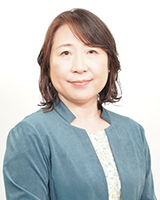- HOME
- Greetings from the President
Greetings from the President

Prof. Yuka Dai, President
Thank you for visiting our website.
The Japan Association of Public Health Nurse Educational Institutions (JAPHNEI) was established in 1980 and has been a General Incorporated Association since 2011. The JAPHNEI has 239 member schools, of which approximately 85% are public health nurse training schools.
In Japan, Public Health Nurse (PHN) is a national qualification from the Ministry of Health, Labor and Welfare. According to the Act on PHNs, Midwives, and Nurses, the Ministry oversees the use of the title of PHNs and provides guidance to this health profession. They serve as key contributors to public health, aiming to secure the lives and rights of residents as integral players in the social security system. As the rapid decline in birthrates and population aging continue to progress in Japan, people face many health-related problems, including health disparities, isolation and loneliness, natural disasters, and pandemics.
In this context, PHNs fulfill their mission as a public health professional in various settings such as where people live, work, and learn. They aim to extend healthy life expectancies, reduce health disparities, support mental health, promote new ways of working, build community care systems, and improve health crisis management systems. Therefore, PHNs must acquire advanced practical skills to support interpersonal relationships and communities, establish health promotion policies, create community care systems, and meet high ethical standards. With the amendment of the designation regulations for PHNs, midwives, and nurses’ training schools from 2022, education in nursing foundational programs has been strengthened, particularly in community health nursing, which focuses on learning about nursing practices for community members. Considering these results, enhancing nursing practices based on knowledge of public health nursing in public health nursing education is a need.
The JAPHNEI believes that it is essential to address societal challenges related to public health and well-being by collaborating with relevant organizations while also dedicating ourselves to PHN students so they can become the next generation of PHNs who can effectively meet society’s changing needs. Therefore, we will promote PHN education in graduate school and through advanced courses to improve the quality of PHN education.
Considering the revisions in the nursing education model core curriculum, we will work to clarify PHN competencies and revise the model core curriculum for PHN education. We will also collaborate closely with relevant organizations to develop instructional materials to enhance health crisis management skills and establish training programs and systems for educational quality assurance. Through these efforts, we are committed to training professionals with higher practical skills who can make meaningful contributions to society.
Please join and cooperate with the activities of the JAPHNEI.









